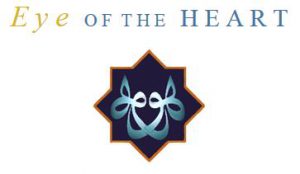
THRESHOLD SOCIETY NEWSLETTER ~ JUN 2020
***
Truthfulness & Justice
Reflecting on the current moment with Quran 6:115 and our responsibility in bringing justice and truthfulness to the world; meditating on light, Nur ala Nur; and sharing wisdom from Hasan Lutfi Shushud. Watch yesterday’s weekly meditation below.
***
June Theme
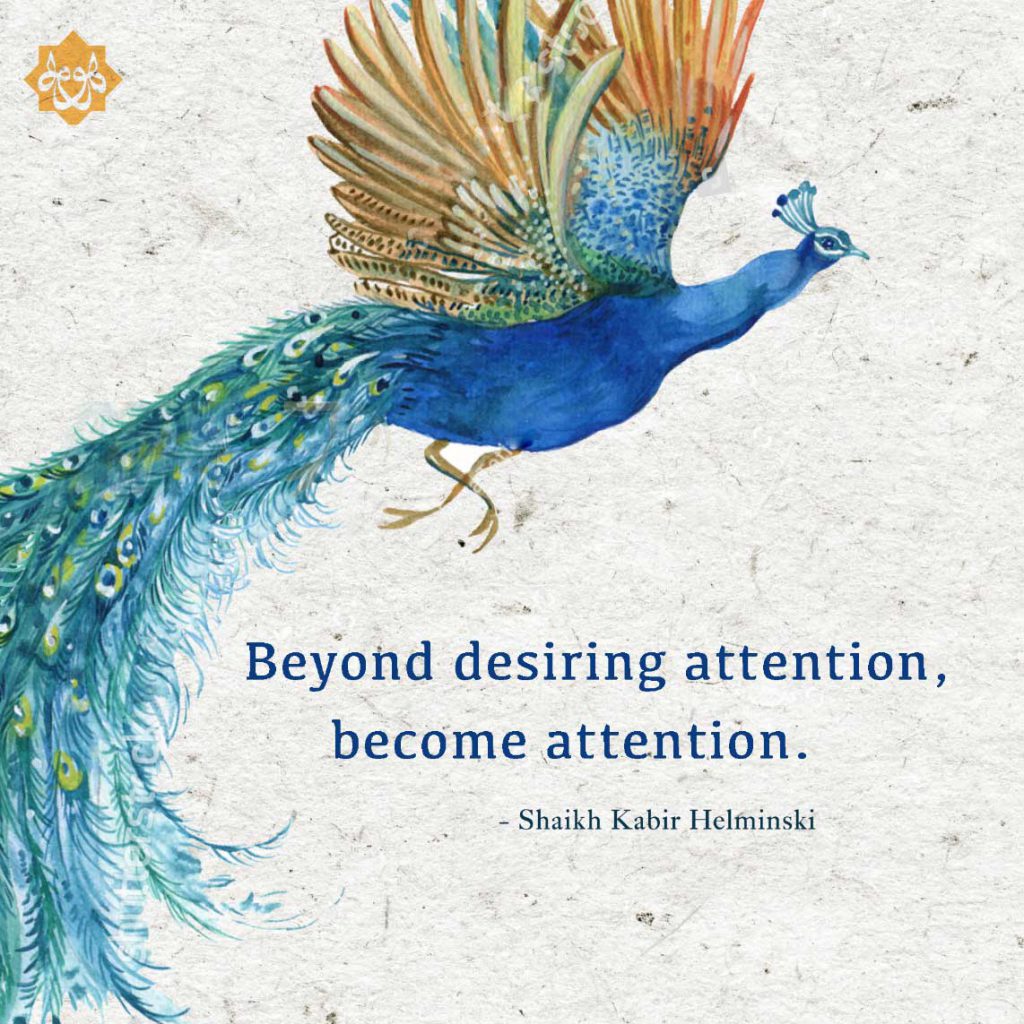
Beyond desiring attention, become attention. ~ Shaikh Kabir Helminski
We welcome your reflections on this theme.
***
Reflection on May’s theme: Your body is a servant; train it with love. ~ Shaikh Kabir Helminski
~ Sabina Pačariz [London, UK]
 The first thing that came to my heart was the Qur`anic verse:
The first thing that came to my heart was the Qur`anic verse:
O MAN! What is it that lures you away from your bountiful Sustainer, who has created you, and formed you in accordance with what you are meant to be, and shaped your nature in just proportions?
[Qur’an 82:6-7]
At first I thought that the “just proportions” represent the perfect adjustment of our bodies to life on Earth, the multiple organs harmonized in splendid synchrony, the magnificent gift of our five senses. Mohammad Asad`s interpretation of this phrase was very enlightening: “physical, emotional urges, intellectual and spiritual perceptions, in other words without any inherent conflict between `the spirit and the flesh.`”
While our bodies epitomize the material world, they equally host matters of the heart. Thanks to our bodies we can differentiate that one smile that means the world to us, hold the hand of a beloved, touch the ground with our foreheads, whirl. What better example of beautiful service than the servant we integrate into ourselves? However, our bodies can be obnoxious masters if we heedlessly surrender to their physical urges. Not to mention the industries crying for worship in the church of the body. Back to the surah quoted above, one naturally wonders if that is in accordance with what we are meant to be? Or as Mevlana beautifully teaches us:
The body is like a garment. Go, seek the wearer of the garment, and do not lick a garment.
[Mathnawi III: 1610]
Ramadan is perfect time to reflect on the service of our bodies and our true nature, as we take a break from our carnal self. I often tell friends unfamiliar with Islamic practices that fasting is not some kind of dietary regime, but a profound journey inwards. I am a PhD student in my final year, which can be a pretty intense endeavour. At the beginning of the holy month, I had waswasa moments (delusional thoughts of mistrust and worry) of wondering if I should continue fasting in this stage. My body obviously slows down, and I need to be fully energized. At earlier moments of self-doubt, my sheikh advised me to keep in mind that it is God who gives strength. That same reminder kept my doubts quiet, pushing me forward with the fast. Soon I realised that my frequent breaks for coffee and chocolates are actually distractions. They are not resources of efficiency, but rather false shortcuts. I have trained my body into addiction, enjoying the instant energy boosts.
Ramadan, on the other hand, placed much gentler structure, not only with eating habits, but with writing as well. I might not always hit my numeric goal of words, but my writing is of a different character. I hear my own thoughts with more presence, see how they fit in the big picture with more clarity, have a stronger focus on their quality. The question of “What am I doing here?” is most vibrant in my scholarly efforts, but it frequently transcends my other faculties during these blessed days. I question more frequently the things I waste my time on, the quality of food I feed my eyes and my ears. My default actions, reflexive use of “instant solutions,” and the underlying lack of essence become more obvious. I realise that after taming my bodily urges, I become more vigilant about what I feed my heart.
Ramadan enlivened another profound quote of Rumi:
Our original food was the light of God.
[Mathnawi II: 1082]
It reminded me of my late father, who died from brain tumour. This strong and handsome man transformed with galloping speed, returning to his creator within a couple months. While taken off guard with the sudden development and pain, we were equally blessed with witnessing my father’s return to his essence. His empathy and kindness multiplied, he asked for forgiveness and was more forgiving himself. I vividly remember relatives coming to visit him on his deathbed, laughing like crazy from his jokes. My father ate very little and slept even less, but the light was shining through him.
Speaking of food, we often discuss the importance of hygiene; fruits and vegetables should be washed before eating, unpolluted by harmful environments or pesticides. We should apply the same hygienic standards to our thoughts. We need to feed our bodies conscious thoughts, take conscious breaths. In Sufi circles, we often talk of the essence of breathing consciously and tying our zhikr to such breaths. This Ramadan I understood the profundity of those words more viscerally. I do not want to echo the pop-psychology clichés of “be positive, be happy” here. There is vaster wisdom in recognising our inner processes for what they really are, and allowing them to pass through us. But even these reflections need to be conducted consciously, bearing in mind that your duty is only to convey the Message; Ours is the reckoning [Qur’an 13:40]. Otherwise we fall victims to our circumstances.
This month I completed a course on ghusul and shrouding (bathing and preparation of the deceased). I immediately felt drawn to it, as my blessed grandmother used to perform this service in our hometown. It always captivated me how she spoke about death; for her it was just another step on the ladder. In the course on ritual, we were blessed with a learned and kind shaikha, who opened new doors for me. She moved me with her repeated insistence on being very gentle with the body, constantly keeping in mind the intensified sensitivity and the dignity of the deceased. At the end, she invited us to contemplate our own death, our own bodies being washed and wrapped in sheets.
At that point I understood with my heart the service of the body as a vessel. Bound by our breath, it is our bodies that connect us to this world. All our senses and shapes are beautifully adjusted to enrich our existence on Earth. Contemplating the end sheds light on the sacredness of this beautiful gift of life, the need to serve what we are meant to be. Breathing consciously is a major step, grounding in my own body and reminding me of its noble nature. Keeping remembrance with the breath brings me back to that One source we all serve. Breathing and being breathed…
~ Sabina Pačariz is a PhD student, interpreter, and seeker on the Mevlevi path.
***
Eyvallah and Ilallah
~ Matthew Wright [Mid-Hudson NY, USA]
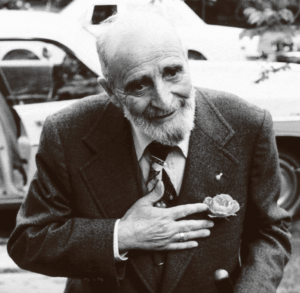
Today I came across a teaching from Suleyman Dede — just one sentence: “A dervish is Eyvallah and Ilallah.”
Kabir Dede writes in The Knowing Heart:
In Sufism, there is a phrase, ‘Eyvallah,’ which means something like, ‘Yes, God,’ ‘So be it,’ ‘Amen,’ or ‘All good is from God.’ It is a typical response when one is offered something, when one loses something, when one is praised, when one is criticized.
Eyvallah is a statement of acceptance — accepting what we are given, without defensiveness or self-inflation. Whatever Allah gives us, moment by moment, Eyvallah. Eyvallah is not passivity in the face of injustice, abuse, or oppression. It is an inner grounding that does not give way to pride or blame, to reactivity or self-pity. It is trust in God.
Ilallah is the second half of the first phrase of the Shahada — La ilaha ilallah, “There is no god; only God.” La ilaha is the negation of all our false gods — our illusions of separation, our selfishness, our vanity, our greed. Ilallah is the affirmation that Love alone is worthy of our worship; that Unity alone is Ultimate; that God alone is Real.
A dervish, Suleyman Dede says, is Eyvallah and Ilallah. May these two words, these states, this reality, take root little by little and more and more deeply in our being.
Eyvallah. Ilallah.
***
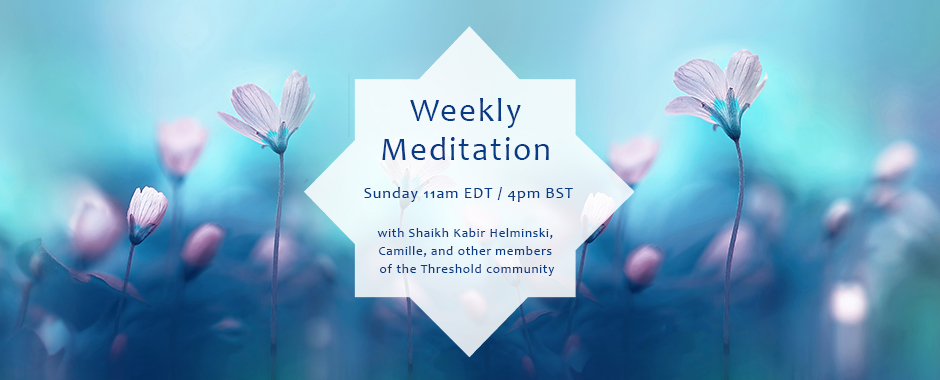
A weekly online meditation with Shaikh Kabir Helminski, Camille, and other members of the Threshold community. Every Sunday at 11am Eastern Daylight Time (4pm BST).
Allah will not ask from anyone more than He has bestowed. Surely, after hardship Allah will bring ease.
لا يُكلّفُ اللهُ نَفْساً إلَّا مَا آتَاهَا سيجعلُ اللهُ بعد عُسرٍ يُسْراً
[Sūrah aṭ-Ṭalāq 65:7]
How will we endure? We will endure with Rahman, The Divine Compassion & Mercy. We must carry each other. “All believers are brothers/sisters.”
God says, “I am in you. Where are you?” We must find Spirit within ourselves, as Love.
Join us every Sunday on Zoom: https://zoom.us/j/435138208
[If you have not used Zoom before, please allow time to install and test the software before the meeting time. Click the above link and you will be prompted to download.]
Watch all the previous meditations on our YouTube channel.
***
The Sufi Hour
In conversation with Nur Artiran about the current crisis, the unity of humanity, and the values dervishes live by.
***
UK Retreat 2019 Audio
Resonance: The Spirit of Sound
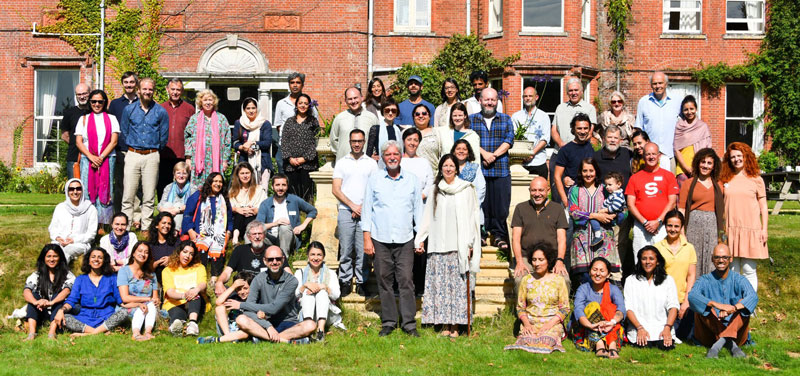
Dorset Retreat 2019 by David John Ward
We had a few issues with the audio from the last year’s retreat but we hope this is of benefit to you, especially since we will not be able to to hold the UK retreat this year.
***
HeartSpace Sufi App
Awaken the heart with the wisdom & practice of Sufi spirituality
“This app is filled with gorgeous wird & dhikr. Each one is like a love letter from God directly to my soul. If you find yourself in need of reflection, guidance, or solace, this app will guide you to spiritual healing & regrowth, inshAllah.“
The purpose of HeartSpace is to awaken the consciousness of the heart through the wisdom and practice of Sufi spirituality. It is through the heart that a human being can experience the peace, inner strength and sense of well-being that comes through spiritual practice. True spirituality is based on experience more than beliefs. HeartSpace offers an introduction to traditional principles and practices shared across Sufi lineages. HeartSpace is not meant to replace lived spiritual guidance, but is intended to be an opening or a complement to your spiritual journey. All praise and thanks be to the Sustainer of the Universe.
More details here.
***
The Threshold Society
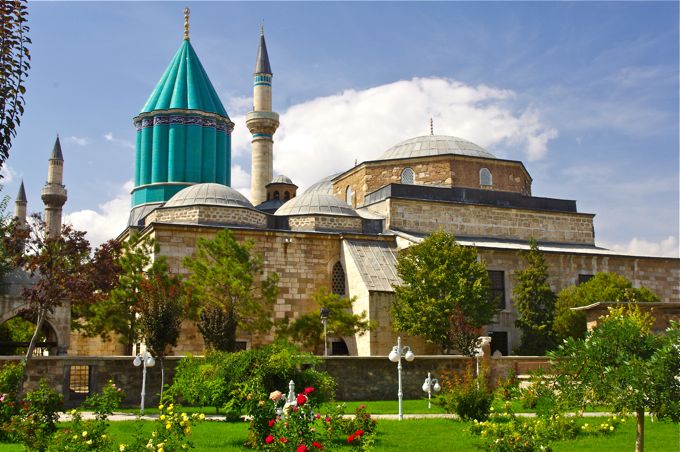 The Threshold Society, rooted within the traditions of Sufism and inspired by the life and work of Mevlâna Jalâluddîn Rumi, is a non-profit educational foundation with the purpose of facilitating the experience of Divine Unity, Love, and Truth in the world. Sufism is a living tradition of human transformation through love and higher consciousness. Our fundamental framework is classical Sufism and the Qur’an as it has been understood over the centuries by the great Sufis. The Society is affiliated with the Mevlevi Order, and offers training programs, seminars and retreats around the world.
The Threshold Society, rooted within the traditions of Sufism and inspired by the life and work of Mevlâna Jalâluddîn Rumi, is a non-profit educational foundation with the purpose of facilitating the experience of Divine Unity, Love, and Truth in the world. Sufism is a living tradition of human transformation through love and higher consciousness. Our fundamental framework is classical Sufism and the Qur’an as it has been understood over the centuries by the great Sufis. The Society is affiliated with the Mevlevi Order, and offers training programs, seminars and retreats around the world.
Each month we intend to highlight an article about our lineage and its principles. This month we offer: Lessons in the School of Love: The Adab of Sacred Space.
Sufi training is accomplished, above all, in the Sufi lodge and the network of relationships cultivated there. Sometimes the Sufi lodge is an actual tekkye or dergah, a private home, a rented hall, and sometimes it may even be a “tekkye on wheels,” as when we travel to a foreign country together. What is most important is the intention and an understanding of why we come together. We are seeking to create and sustain an environment where spiritual realization can be optimized, where the influence of egoism can be minimized, and where the values and knowledge of the tradition can be preserved.
When we step over the threshold of the Sufi tekkye (lodge) we are leaving one world and entering another. We are leaving the environment of the mundane and entering sacred space. We do this, above all, with our intention. Our intention is to be present, courteous, and aware of our own self (nafs).
***
Memories
1995: Camille, Shaikh Kabir, Celalettin Çelebi Efendi and Maestro Doğan Ergin, Conductor and Composer, before a Sema at American University, Washington D.C.
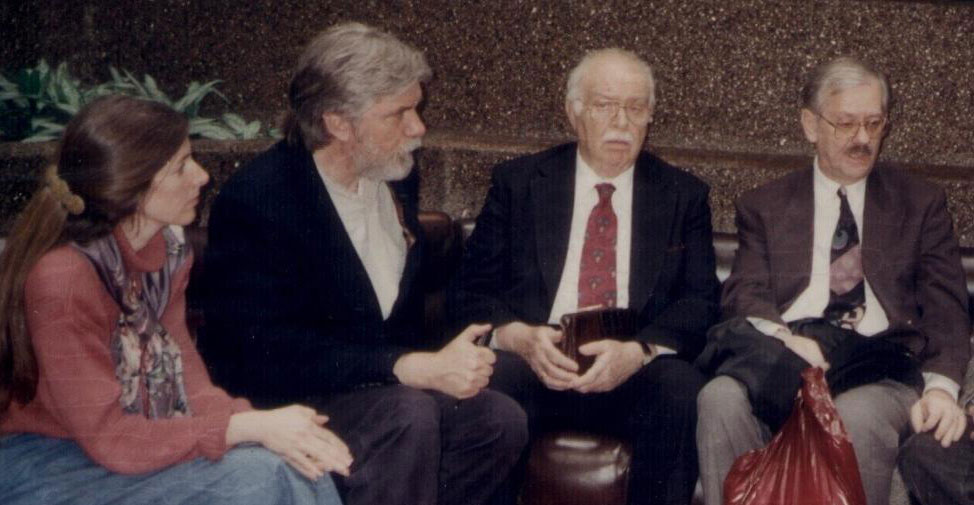
***
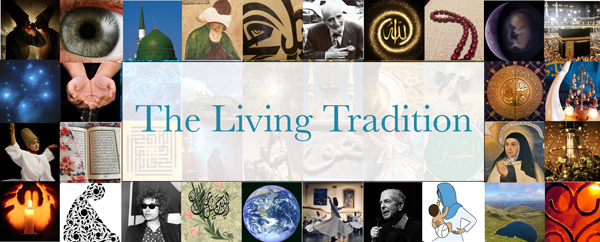
Threshold’s collaborative blog channel The Living Tradition on Patheos.com is reaching new audiences and sharing the experiences of our community in a unique and vibrant way.
Let us know what you think by commenting on the posts — join the discussion at www.patheos.com/blogs/livingtradition and “follow” The Living Tradition.
Recent articles:
Prayers Are Answered in the Still of the Night by Daliah Merzaban
All Food is Sacrifice by Mahmoud Mostafa
Finding Forgiveness with al-Ghafur by Anna Rohleder
***
Recent Publications
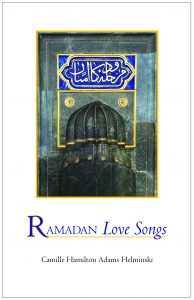
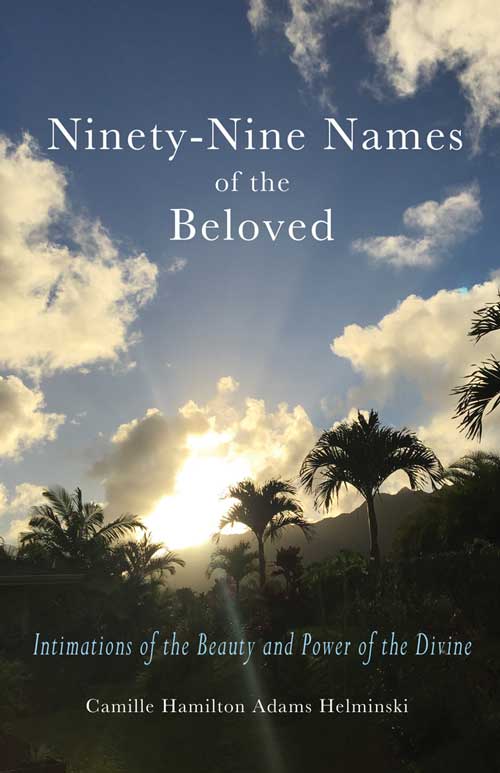
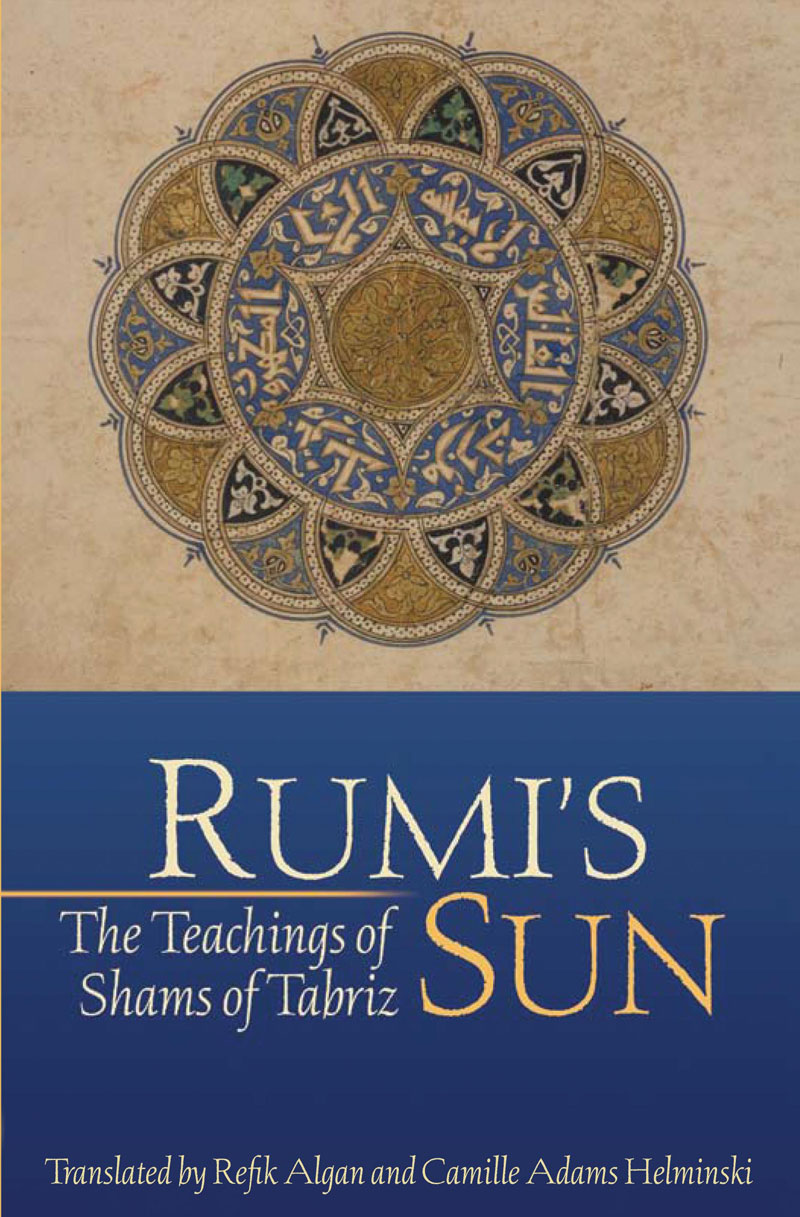
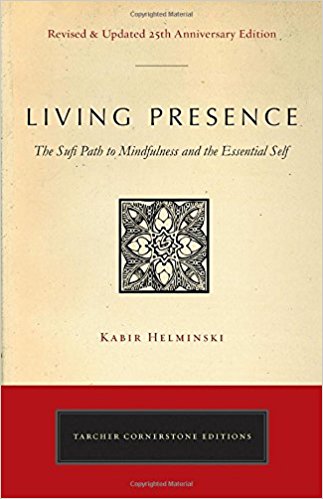
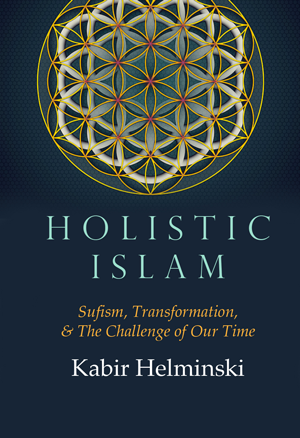
We encourage you to leave reviews on Amazon.
And remember you can donate to Threshold Society through Amazon Smile.
For AmazonSmile US: smile.amazon.com
For AmazonSmile UK: smile.amazon.co.uk
We appreciate your support.
***
Calendar
Sunday Weekly Online Meditations: more details
Jul 31: Eid al-Adha
Events with Kabir (K) & Camille (C)
***
We’d love to hear from you – get in touch at eyeoftheheart@sufism.org
***
Find out how to support the work of Threshold Society.
***
Receive this newsletter by email: sign-up here.

